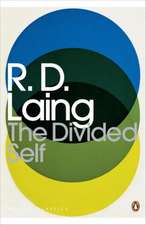The Gender of Suicide: Knowledge Production, Theory and Suicidology
Autor Katrina Jaworskien Limba Engleză Paperback – 17 noi 2016
| Toate formatele și edițiile | Preț | Express |
|---|---|---|
| Paperback (1) | 486.17 lei 6-8 săpt. | |
| Taylor & Francis – 17 noi 2016 | 486.17 lei 6-8 săpt. | |
| Hardback (1) | 1057.75 lei 6-8 săpt. | |
| Taylor & Francis – 10 ian 2014 | 1057.75 lei 6-8 săpt. |
Preț: 486.17 lei
Nou
Puncte Express: 729
Preț estimativ în valută:
93.03€ • 97.38$ • 77.43£
93.03€ • 97.38$ • 77.43£
Carte tipărită la comandă
Livrare economică 31 martie-14 aprilie
Preluare comenzi: 021 569.72.76
Specificații
ISBN-13: 9781138279094
ISBN-10: 1138279099
Pagini: 208
Dimensiuni: 156 x 234 mm
Greutate: 0.38 kg
Ediția:1
Editura: Taylor & Francis
Colecția Routledge
Locul publicării:Oxford, United Kingdom
ISBN-10: 1138279099
Pagini: 208
Dimensiuni: 156 x 234 mm
Greutate: 0.38 kg
Ediția:1
Editura: Taylor & Francis
Colecția Routledge
Locul publicării:Oxford, United Kingdom
Cuprins
Contents: Understanding suicide through gender: an introduction; The construction of knowledge of suicide and gender in suicidology; Performative knowledge: re-reading gender in suicide; Durkheim’s social recognition of gender in Suicide; ’Fact-finding exercises’: the coroner, suicide and gender; ’What it means to see’; reading gender in medical examinations of suicide; The visibility of difference: gender and suicide in psy-knowledge; Intriguing events, spectacular deaths; What now? Concluding remarks; Bibliography; Index.
Notă biografică
Katrina Jaworski is a Lecturer in Cultural Studies at the School of Communication, International Studies and Languages, University of South Australia.
Recenzii
’Approaching the concept of suicide from the perspectives of gender and culture, Katrina Jaworski presents a beautifully-written and theoretically engaging account of suicide that troubles key cultural ideas of agency, intent, bodies, psychology and selfhood. This thoughtful and ethical book analyses across a range of important discourses of suicide to present new approaches to understanding suicide in the context of gender, bodies, culture and subjectivity.’ Rob Cover, University of Western Australia, Australia ’In this lucidly written, carefully researched and critically astute study, Katrina Jaworski brings to our attention something that is too easily obscured in everyday discourse - the ways in which gender norms shape our interpretation of the acts and practices associated with suicide. With its detailed attention to expert knowledge practices as well as popular discourses, this book challenges us to reflect critically on what we think we know about suicide, and (just as importantly) the manner in which we have come to know it. The book is crucial reading for those who are concerned with the terms through which living and dying come to make sense.’ Kane Race, University of Sydney, Australia
Descriere
Drawing on diverse theoretical and textual sources, The Gender of Suicide presents a critical study of the ways in which contemporary society understands suicide, exploring suicide across a range of key expert bodies of knowledge. With attention to Durkheim's founding study of suicide, as well as discourses within sociology, law, medicine, psy-knowledge and newsprint media, this book demonstrates that suicide cannot be understood without understanding how gender shapes it, and without giving explicit attention to the manner in which prevailing claims privilege some interpretations and experiences of suicide above others.














